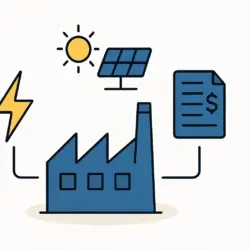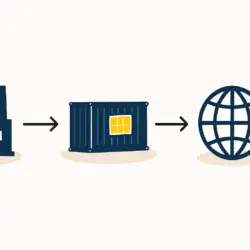Thailand solar rooftop law sparks a revolution in simplified installations
Thailand is set for a transformative shift in its energy landscape with a new law aimed at simplifying the installation of solar rooftops. This legislative initiative, spearheaded by Energy Minister Pirapan Salirathavibhaga, seeks to streamline the installation process, reduce household electricity costs, and bolster the country’s commitment to renewable energy. The bill, currently in draft form, is expected to be submitted to the Cabinet for approval shortly.
Learn more about the bill’s impacts.
Cost-effective solutions under the Thailand solar rooftop law
The proposed bill eliminates the permit requirement for installing solar rooftops, which will significantly lower the costs associated with installation and selling excess electricity back to the grid. This reform is designed to incentivize more households and businesses to transition to solar energy, aligning with Thailand’s broader renewable energy goals. The bill will also simplify the process of selling electricity from solar rooftops back to the grid, providing an easier pathway for households and businesses to recover their investments in solar energy systems and fostering more widespread adoption of renewable energy solutions.
Expanding capacity through the Thailand solar rooftop law
As of 2023, Thailand has a total solar capacity of 4,238.5 megawatts (MW), with solar rooftops contributing 1,769.5 MW. The government’s ambitious plan targets an additional 3,000 MW to 4,000 MW of capacity by 2037. Solar rooftops are expected to be pivotal in achieving these targets, as the simplified installation process should encourage more widespread adoption. The Energy Ministry has also directed the Metropolitan Electricity Authority (MEA) and the Provincial Electricity Authority (PEA) to facilitate the integration of electricity from solar rooftops into the national grid to ease the sale of surplus electricity and attract more investment in solar energy.
Economic benefits driven by the Thailand solar rooftop law
The government’s push for solar rooftop installations is expected to yield significant economic benefits. By reducing electricity costs for households, the initiative could increase disposable income and boost spending across various economic sectors. Additionally, the burgeoning solar energy sector is expected to create new job opportunities in installation, maintenance, and manufacturing.
This legislative move is part of Thailand’s long-term energy strategy to increase the share of renewable energy in the national energy mix. By 2037, the government aims to meet a substantial portion of the country’s energy needs with renewables, including solar, wind, and biomass. Explore Thailand’s renewable energy strategies.
The anticipated Cabinet approval of this law will mark a significant milestone in Thailand’s transition toward sustainable energy. By making solar energy more accessible and affordable, the government hopes to foster widespread adoption of solar rooftops, enhancing the country’s energy security and environmental sustainability.



